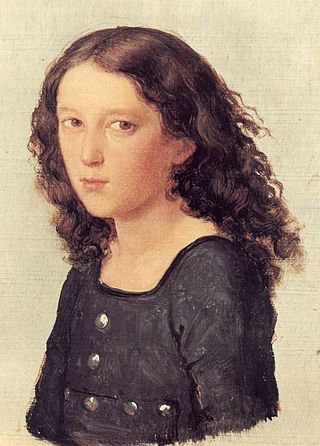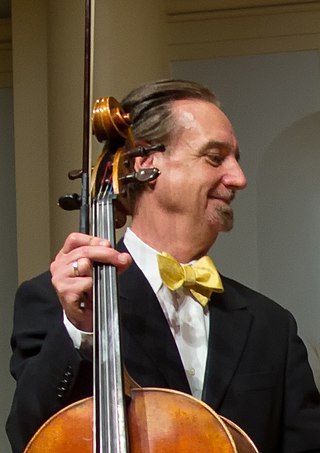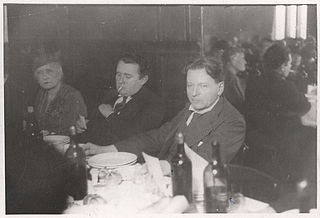Related Research Articles

Yehudi Menuhin, Baron Menuhin, was an American-born British violinist and conductor who spent most of his performing career in Britain. He is widely considered one of the greatest violinists of the 20th century. He played the Soil Stradivarius, considered one of the finest violins made by Italian luthier Antonio Stradivari.

George Enescu, known in France as Georges Enesco, was a Romanian composer, violinist, pianist, conductor, and teacher and is regarded as one of the greatest musicians in Romanian history.
Pamela Frank is an American violinist, with an active international career across a varied range of performing activity. Her musicianship was recognized in 1999 with the Avery Fisher Prize, one of the highest honors given to American instrumentalists. In addition to her career as a performer, Frank holds the Herbert R. and Evelyn Axelrod Chair in Violin Studies at the Curtis Institute of Music, where she has taught since 1996, and is also an adjunct professor of Violin at the University of Southern California's Thornton School of Music since 2018.
Adolph Baller was an Austrian-American pianist who played classical and romantic music. He performed with Yehudi Menuhin for several years, toured internationally for decades with the Alma Trio, and was a renowned piano teacher at Stanford and the San Francisco Conservatory of Music.
The Shanghai Quartet is a string quartet that formed in 1983. The quartet is made up of: first violinist Weigang Li, second violinist Angelo Xiang Yu, violist Honggang Li, and cellist Nicholas Tzavaras. On November 20, 2020 the ensemble announced the newest member, Angelo Xiang Yu. The Shanghai Quartet accepted the resignation of former second violinist Yi-Wen Jiang on March 17, 2020. The group's tours have included North America, South America, Japan, China, Australia, New Zealand, and Europe. Among their performances, the Shanghai Quartet has developed a long list of performance collaborators including Yo-Yo Ma, David Soyer, Eugenia Zukerman, Sharon Isbin, Ruth Laredo, Arnold Steinhardt, and Chanticleer.

The Concerto for Violin and String Orchestra in D minor, MWV O 3, was composed by Felix Mendelssohn at the age of thirteen. It has three movements, Allegro–Andante–Allegro, and performance duration is approximately 22 minutes.

William Waterhouse was an English bassoonist and musicologist. He played with notable orchestras, was a member of the Melos Ensemble, professor at the Royal Northern College of Music, author of the Yehudi Menuhin Music Guide "Bassoon", of The New Langwill Index, and contributor to the New Grove Dictionary of Music and Musicians.
Derek Simpson was an English cellist, known primarily from his work with the Aeolian Quartet, and as the teacher of many contemporary cellists.

Ya’akov Rubinstein is an Israeli violinist.
Walter Levin was the founder, first violinist, and guiding spirit of the LaSalle Quartet, which was known for its championing of contemporary composers, for its recordings of the Second Viennese School, as well as for its intellectually penetrating interpretations of the classical and romantic quartet repertory, in particular the late quartets of Beethoven. Levin was also an important pedagogue, having taught many of the world's leading string quartets, among them the Alban Berg Quartet and the Arditti Quartet; other prominent students include the conductor James Levine, the violinist Christian Tetzlaff and the pianist Stefan Litwin.

Suite for Flute and Jazz Piano is a "crossover" composition by the jazz pianist and composer Claude Bolling. The composition, originally written in 1973, is a suite of seven movements, written for a classical flute, and a jazz piano trio.

David Finckel is an American cellist and influential figure in the classical music world. The cellist for the Emerson String Quartet from 1979 to 2013, Finckel is currently the co-artistic director of the Chamber Music Society of Lincoln Center in New York, co-founder of the independent record label ArtistLed, co-artistic director and co-founder of Music@Menlo in Silicon Valley, producer of Cello Talks, professor of cello at The Juilliard School, and visiting professor of music at Stony Brook University.
Ashley Wass is a British classical pianist and director of music at the Yehudi Menuhin School.
Jeremy Louis Eugene Menuhin is a composer and pianist and the son of violinist Yehudi Menuhin.

Luz Leskowitz is an Austrian violinist, founder of the Salzburg Soloists music ensemble. He is an owner of the ex-Prihoda Stradivarius violin made in 1707.
Edna Michell is an Israeli-American violinist, pedagogue, and founder and director of music festivals, institutes, and concert series, known for her versatility and her efforts to expand the violin and chamber music repertoire.
Compassion Through Music is an ongoing project created by violinists Edna Michell and Yehudi Menuhin, in which leading composers write works inspired by the theme of universal compassion. The project reflects Michell and Menuhin’s belief that compassion is critical to the fate of humanity and that through music, listeners may be moved to connect more deeply with others.

Piano Quartet No. 2 in D minor, Op. 30, is a chamber-music composition by the Romanian composer George Enescu, written in 1943–44.

The Piano Quartet No. 1 in D major, Op. 16, is a chamber music composition by the Romanian composer George Enescu, written in 1909 and first performed in Paris the same year.
Nannie Jamieson MBE, FGSM, ARCM, was a British violist. She was a founder member and violist of the Robert Masters Quartet from 1939 until 1963. She was a founder member of the Menuhin Festival Orchestra, and Professor of Violin and Viola at the Guildhall School of Music in London.
References
- ↑ Hughes, Allen (27 February 1981). "Chamber Music: Cantilena at Y". New York Times. Retrieved 2 November 2014.
- 1 2 3 Schonberg, Harold (5 December 1982). "The Piano Quartet Gets a new Boost". New York Times. Retrieved 2 November 2014.
- ↑ "Renaissance Concerto For Flute and Orchestra Liner Notes" (PDF). New World. 1992. Archived from the original (PDF) on March 16, 2004. Retrieved November 3, 2014.
- ↑ Jacobson, Marion (January 14, 1991). "Cantilena, Romancing the Tried and True". The Washington Post. Archived from the original on March 28, 2015. Retrieved November 3, 2014.
- ↑ "Around Town". New York Magazine. December 4, 1978. Retrieved November 3, 2014.
- ↑ Shepard, Richard F. (February 25, 1981). "Going Out Guide". The New York Times. Retrieved November 3, 2014.
- ↑ "Yehudi Menuhin at Lake Placid (1980)". BFI Film Forever. Archived from the original on November 3, 2014. Retrieved November 3, 2014.
- ↑ "Docs and Awards". ABAMedia. Retrieved November 3, 2014.
- ↑ "Round A Common Center". Discogs. Retrieved November 3, 2014.